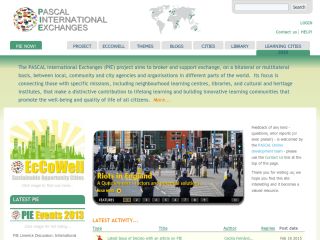Spare Rib magazine goes online for the first time
Few titles sum up an era and a movement like Spare Rib. With its commitment to challenging the status quo, Spare Rib battled oppression and gave a voice to the struggles, discussions and debates of diverse groups of women over the 21 years it was in print (1972-1993).
From today, every edition of Spare Rib magazine will be available to be viewed by anyone online for free.
The British Library will host a curated Spare Rib website featuring 300 selected pages from the magazine, alongside articles written by academics, activists and former contributors about how Spare Rib was run, its history and the issues it tackled.
This site will link through to the website for Jisc, a charity which supports digital technologies in UK education and research, where the entire run of magazines will be available to view. Jisc’s Journal Archive platform allows users to browse across 239 issues and locate material from more than 11,000 pages of the magazine.
Until now, the full run of magazines has only been available for consultation in the British Library reading rooms and a few other libraries and archives.
The digitised Spare Rib site will mean that researchers, historians, students and anyone interested in feminism or activism can search across all 239 editions for the first time, transforming the way in which the magazines can be accessed, discovered and re-used.
Polly Russell, Curator of Politics and Public Life at the British Library commented:
“Funny, irreverent, intelligent and passionate, Spare Rib was a product of its time which is also somehow timeless.
“Detailed features on feminist issues such as domestic violence and abortion, and news stories about women from the UK and around the world sit side-by-side with articles about hair care (including the unwanted kind), how to put up a shelf and instructions on self-defence.
“Just as varied were the breadth of voices in the magazine; early editions of Spare Rib involved big-name contributors including Betty Friedan, Germaine Greer, Margaret Drabble and Alice Walker, but alongside these were the voices of ordinary women telling their own stories.
“By making this part of our intellectual heritage available online, we hope it will attract new and returning generations of readers to the magazines for research, inspiration and enjoyment.”
A selection of articles from the Spare Rib archive:
- "What offends one of us won’t offend the next chap" by Pat Moan and Jill Nicholls (Issue 72, July 1978), a timely article about complaints from the feminist community about sexist advertisements. Under challenge were the Juicy Fruit ‘juicy fruity fresh and cheap’ chewing gum ads, and Mandate perfume ad
- “Taking control of our sex lives” by Angela Hamblin (Issue 104, 1981). A detailed article based on accounts by ordinary women about what sexual liberation means in the bedroom. Typical of Spare Rib’s bold and honest style, articles like this one broke long-held silences on the female sexual experience for many women
- “How can we support our sisters?” (Issue 92, Mar 1980) Now called female genital mutilation, Spare Rib was at the forefront of a campaign to get the practice of ‘cliterectomy’ stopped. Written by multiple authors, this forward-thinking article includes detailed analysis of the subject in the context of overall attitudes to sexuality, progeny and power
- "Hairy Story" (Issue 66, Jan 1978), a funny, irreverent and serious article asking “how many of us still secretly feel we’re too hairy?”, coupled with witty cartoons from Posy Simmonds
This project has been developed in consultation with the original community who founded and published Spare Rib.
Marsha Rowe, co-founder of Spare Rib magazine, said:
“I’m thrilled at the digitization of Spare Rib by the British Library. It’s as if the magazine has been given a new lease of life. By making the magazine freely available over the internet, it can encourage women round the world to act together for change and be a resource in support of their struggle for rights and freedoms.”
Sue O’Sullivan, who worked full time at Spare Rib from 1979 – 1984, said:
“Spare Rib was a highly visible part of the Women’s Liberation Movement, and a tool for reaching thousands of women every single month for over 20 years. The digitised magazines will be a wonderful resource for younger historians and feminist activists, researchers and all the women (and men) who wonder what their mothers, aunts, grannies and older friends got up to all those years ago.”
Debra Ferreday, Senior Lecturer, Centre for Gender and Women's Studies, Lancaster University comments:
“The importance of the Spare Rib archive can't be overestimated. It's a unique record of the Women's Liberation Movement which will be of huge value to feminist researchers, scholars, students and activists everywhere. I'm delighted that Jisc and the British Library have made this material available in such an accessible, user-friendly form.”
- See more at: http://bl.uk/press-releases/2015/may/spare-rib-magazine-goes-online-for-...
| Attachment | Size |
|---|---|
| spare_rib.pdf | 53.16 KB |
 Printer-friendly version
Printer-friendly version- Login to post comments
- 155 reads







